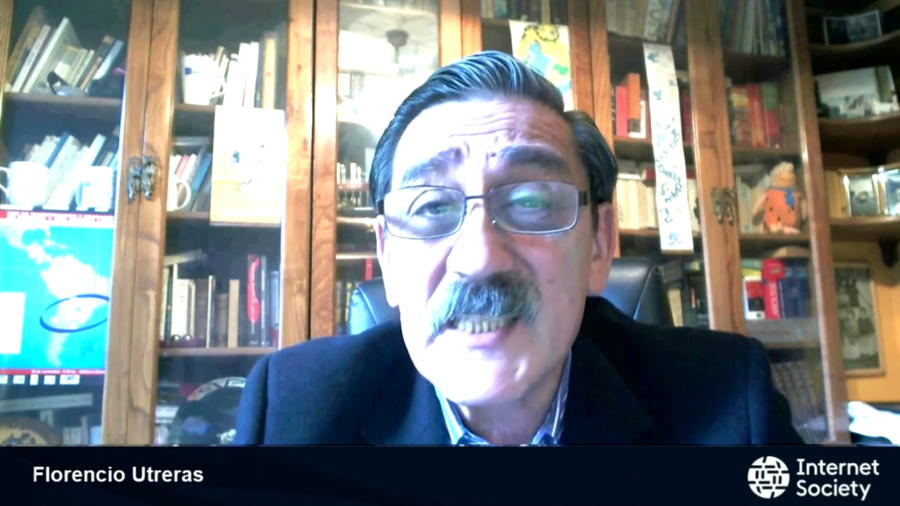Florencio Utreras: Good afternoon. I feel deeply honored to receive this recognition from the Internet Society, an organization that has done so much for the betterment of the Internet in the last twenty-five years. A period of time that has taken the net from an academic curiosity to the network everything depends on today.
During all this time, many of you have been involved in developing the Internet and making it the tool of many phases. From academic collaboration, to business and shopping. From social interaction, to democracy promotion. In short, to all feats of human activity. We have gone from the promotion of connectivity to a connectivity-dependent society, and many could feel that the job is done. That’s it. We created a global tool.
But, being too that we haven’t done great progress, our job is far from being completed. In terms of connectivity, we have huge differences between different regions of the world, with household broadband speeds ranging from 28.7 megabits per second in South Korea, to 1.4 megabits per second in Paraguay, a twenty-fold difference.
Moreover, the price for a 10-gigabit wholesale connection between Latin America and Europe or the US is twenty times the price of the same connection between Europe and the US or Asia and the US. These factors have remained constant a long time. If we add to this the difference in purchasing power between the different regions and countries of the world, we can see that the bandwidth challenge is far from being solved. It’s clear that the market by itself will not solve these differences. Governments and international organizations are needed to promote new investments that drive telecommunications infrastructure to a more robust and diversified topology covering the world.
We must go beyond the actual status, where continents depend on passing through one single country to communicate between them and where some regions of the world monopolize the submarine cables connecting all of us. A great example of collaboration in this sense is the BELLA project, where the European Commission, the academic networks of both Europe and Latin America, and the private sector are working together to build a new cable system to connect both continents by a direct path, and improving this way the reliability and robustness of those academic and Internet connections.
Also, as the Internet has become an integral part of our lives, we face new challenges in terms of security and privacy. As many devices become more and more connected, new opportunities arise, but also new dangers we must be aware of. We must foster a better coordination of our technical teams as well as our governments, and the policies that make the Internet a safe place.
And we must do this imposing censorship or controls that deteriorate the great possibilities that these tools have provided to democratic government movements around the word. But at the same time, these tools have created the danger of making Orwell’s 1984 a reality, as people trust their personal information to global companies that are not subject to the rules of the countries we lives in. We love to be global, but we must be aware that the international legal system is too weak to protect individuals from the abuse of companies who know too much of the personal behavior of people.
Organizations such as the Internet Society must speak loud to make sure that these companies are not above the law, and also to avoid that any particular country imposes its law over the citizens of the entire world. Let us make the cloud a place respecting privacy and the laws of the countries we live in.
It has been a privilege to be able to work with so many of you all of these years and contribute from Latin America to this global endeavor. Thank you very much for allowing me to be part of it, and for this recognition that I deeply cherish. Be sure that that I will continue working with you to build a better Internet for a better world. Thank you very much.
